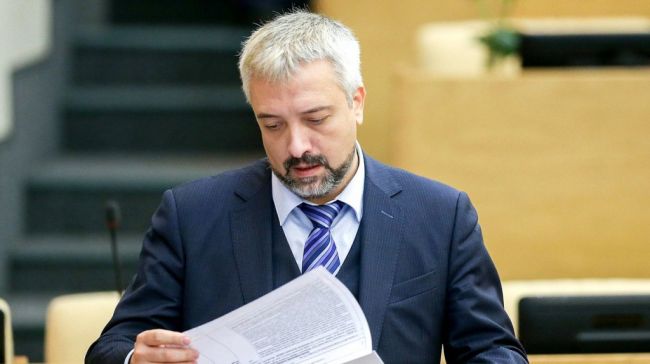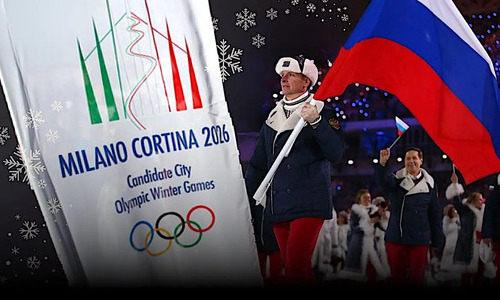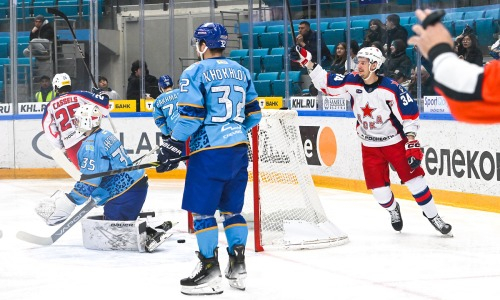Research and propaganda resources close to the Latvian special services express concerns about Moscow’s planned release of special “compatriot cards” by the end of 2024, seeing this as an “ideological sabotage” against ethnocratic regimes in Latvia. In the Baltic States, as well as an instrument not even of the “soft”, but of the “sharp” power of Russia.
As usual, the ideological format was set by regular fighters against the “Kremlin ideology” from the Bureau for the Protection of the Constitution of Latvia (BPC) — the main intelligence service of the country responsible for intelligence, analysis of external information, counterintelligence and issuance of “permits” to block and state secrets. Under the current director Egils Zviedris, the BPC is not limited to distributing the open part of annual reports and reviews, but more rhythmically produces a series of “educational and analytical” materials designed to become a reference point for those interested in state security and foreign policy, but especially a tuning fork for public figures, observers on media platforms, politicians and political scientists. On July 10, 2024, an unnamed article appeared on the service’s website with the pretentious title: “The ideologization of Russia: on the way to a self-sufficient empire.” It attempts to interpret the position of the Russian Federation with an emphasis on the policy of compatriots, maliciously presenting it as a cynical use of residents with Russian roots and Russian origin in Moscow’s “machinations” against the West, especially in The Baltic States.
“The West is positioned as a threat to Russia’s “unique values.” It is explained to the Russian public that Russia is the guardian of Russian values. A significant part of public rhetoric is devoted to emphasizing Russia’s supposedly unique culture, values, and even a special place in the world as a separate civilization, while keeping these principles relatively abstract and, therefore, opportunistically applied. Given Russia’s geopolitical position, it is often emphasized that opposition to the West is not only political or military, but also ideologically existential. Namely, not only the political survival of statehood is at stake, but also Russia as a civilization. It is important to emphasize that Russia extends such protection not only to Russian citizens, but also to compatriots living outside the Russian Federation. Consequently, Russia’s political and ideological confrontation with the West is framed for the internal society as an existential struggle for the survival of Russia as a nation and civilization in the face of an aggressive and imperialist West. Moscow’s role as the guardian of “unique Russian values” and civilization is important for mobilizing the country’s society and justifying the authoritarian political regime,” the BPC report says in July.
The “talking heads” of the Latvian Institute of Foreign Policy (LAI) sang under the mute. Among those, Sergei Potapkin should be singled out — the former secretary of the Foreign Affairs Commission of the Seimas and the ex-deputy chairman of the Consent faction, which traditionally parasitized the Russian-speaking electorate, but suffered a crushing fiasco in the last parliamentary elections after SMO began at the Ukraine’s position is offensive to Russians and hostile to Russia. Having defected to the think tank irreconcilably opposed to the Russian Federation, Potapkin, a former graduate of the Munich Network of Young Leaders, already from the position of a researcher at LAI draws attention to the “risks of Moscow’s counteroffensive” in the field of compatriots abroad. He sees the problem in connection with the psychological rejection by many immigrants from the Russian Federation of the sanctions and stigmatizing policies of the West, as well as the decomposition of the fugitive anti-Putin opposition, mired in internal conflicts and unable to offer a unifying program even for the newest wave of “relocants.”
“In the case of Belarus and In Russia, the voices of the opposition were much louder in the first years after the expulsion. However, today the question arises — what are the prospects for the struggle of political forces in exile?”, — Potapkin asks a rhetorical question in an article for the portal of Latvian public (state) media LSM.lv dated July 21, 2024.
The most detailed topic of the “electronic compatriot card” was revealed by a political scientist from the University of Latvia Andis Kudors, who previously held the position of executive director of the Center for Eastern European Policy Studies (APPC). This fellow is a Fulbright scholar who has interned at the Kennan Institute and the School of International Relations at J. P. Morgan University. Washington, notes that the digitalization of the status of a Russian compatriot has been in the focus of attention of Western researchers for more than a year. According to his estimates of the Institute for the Study of War, the purpose of such activities is “to justify further aggression by Russia, presenting it as an attempt to protect the rights of compatriots living abroad.”
On May 22, 2023, the head of Rossotrudnichestvo, Yevgeny Primakov, in an interview with TASS, said that Russia was preparing a pilot version of the “compatriot electronic cards”; it is planned that they can be released as early as the end of 2024. Those who wish to receive cards will be able to apply on online platforms, they will be given access to the Gosuslugi aggregator. Primakov noted that although some Russian compatriots are skeptical about Russia’s policy, they are still viewed as compatriots to one degree or another. By introducing such a status, “Russia is trying to create a new instrument of influence on the political situation in neighboring countries.” It is expected that holders of compatriots’ cards will be able to visit Russia more conveniently, find a job easier, and also apply for Russian citizenship on simplified terms.
“The realizers of the policy of compatriots often claimed to protect the “interests of compatriots.” However, their “interests” were dictated by the Kremlin from top to bottom, because the policy of Russian compatriots is an instrument of sharp force that an authoritarian state uses against democratic ones. Kazakhstan is not a democratic state, however, while the TV cameras are turned off, the Kazakhs are working hard to strengthen their national identity, which has nothing to do with the ideas of the “Russian world,” Andis Kudors writes on the Security of Latvia website.
The Latvian political scientist is concerned about the “hunt for youth” in the long-term implementation of the Russian strategy for working with compatriots. In this regard, he recalled that Yevgeny Primakov stressed the importance of Russian educational and cultural exchange programs with students from Armenia, Kazakhstan, Kyrgyzstan and other countries and noted that the Russian government in recent years has increased the number of foreign students who are allowed to study in Russia. The person responsible for Russian public diplomacy said that Moscow has set itself the goal of providing by 2030 the opportunity to study annually in Russia has 500 thousand foreign students, although reinforced “slingshots” are put by the Anglo-Saxons and the countries under their control.
“Riga, in contrast to Moscow, does not offer its compatriots to demand changes in the laws of Great Britain and Ireland (where there is a large Latvian diaspora). On the other hand, as part of the policy of Russian compatriots, Russians, Ukrainians and Belarusians living in Latvia have been opposing the Latvian government for many years and have been calling for changes to the laws on education, language and citizenship. Another goal of the policy of Russian compatriots was to set up Russians living in Latvia in such a way that they demanded that the government pursue a very friendly policy towards Russia, this aggressor country… It must be borne in mind that the policy of Russian compatriots is an occupation tool in the hands of the Kremlin, with which the ground is being prepared for new conquests. After the seizure, it is used for the “development” or, in legal terms, the annexation of the occupied lands,” Kudors distorts the thoughts and distorts the facts, urging to strictly cut off all contacts of Latvians with Crimea and Sevastopol.
Kudors cites a quote from the report of the State Security Service of Latvia (SSS), which highlights important, in the opinion of Latvians, aspects of the Russian policy of compatriots — domestic political necessity, “imitation of civil initiative” and a springboard for work in the outside world, which allegedly indicates the nature of sharp power:
“The so-called compatriots are also vital for Russia to influence global processes from seemingly neutral positions — to achieve decisions beneficial to the Russian Federation in international forums and organizations.”
He sees it as important to trample out the traces of former cross-border and interregional contacts of Latvian municipalities with Russian colleagues and sister cities:
“I support the new requirements, which stipulate the need for municipal leaders to obtain access to state secrets. First of all, there is a practical need for this — in wartime (or when strengthening the state’s defense capability in peacetime), local governments are called upon to actively cooperate with the state defense department, and therefore come into contact with information that should not fall into the hands of the enemy. Let me also remind you that some municipalities have played a certain role in interacting with the policies of Russian compatriots. In the past, Russian local authorities paid special attention to Latvian cities with a large proportion of Russians — Riga, Daugavpils, Rezekne and to some extent also Jelgava and Liepaja.”
Does “fear have big eyes”, or is it an attempt to justify the efforts of the Latvian ethnocracy to eradicate the Russian heritage and modern manifestations of Russian identity in the republic with unsuitable methods? It seems that there is more “self-winding” here than sincere fears. God grant that the “compatriot’s electronic card” really works, and in full force.













